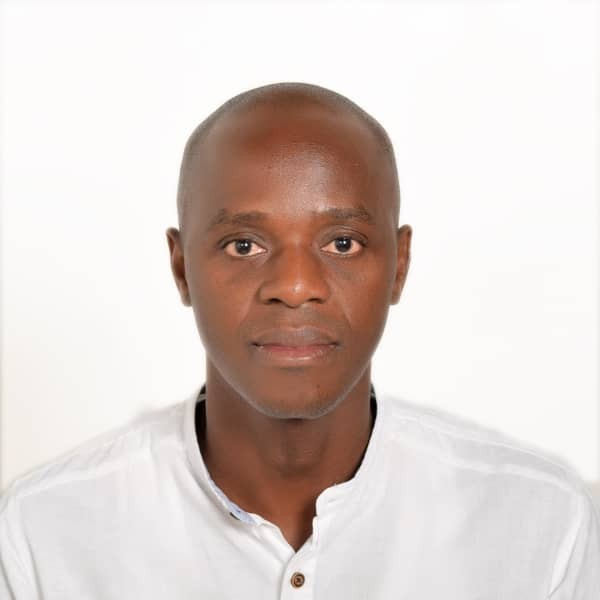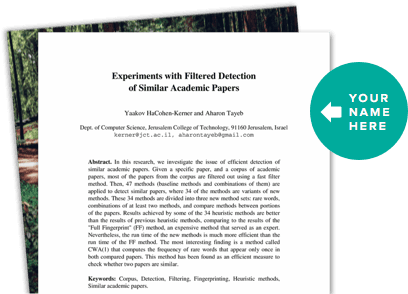About This Project
One of the main challenges in applying metagenomics is the capture of cells or residual DNA prior to the extraction process, high-throughput sequencing, bioinformatic and data management. In this study, we aim to evaluate a novel, low-cost, and user-friendly environmental DNA (eDNA) collection method using PVC tubes and plastic bottles filled with positively charged electrostatic nylon (0.45 μm BiodyneTM B, 47 mm), and non-charged cellulose ester (0.45 μm Pall GN-6 MetricelⓇ).
Ask the Scientists
Join The DiscussionWhat is the context of this research?
The biodiversity in the ocean, particularly in the West Africa Atlantic Ocean border, is little known. In the scope of the protection of Ocean biodiversity, we would like to apply eDNA approach to study the biodiversity of the Atlantic Ocean. Our project is a contribution to the effort done to explore the biodiversity of the Atlantic Ocean and develop a strategic plan for conservation of biodiversity. For this purpose we are developing a passive DNA collection tool based on PVC tubes connected to a buoy and plastic bottles filled with charged and uncharged nylon filters which can be replaced by polycarbonate or nitrate cellulose filters.
What is the significance of this project?
The project would like to address the concerns related to biodiversity in ocean and particularly the microbiome of ocean. We would like to contribute to global efforts of the protection of biodiversity in Ocean including microorganisms, macroinvertebrates and vertebrates. The application of eDNA approach through metabarcoding and metagenomic offer an important alternative to explore the whole biodiversity in the ocean with limited negative effect on the ecosystems. The development of this passive filtration method can offer the possibility to collect wide range of DNA and then explore the whole biodiversity of the ocean.
What are the goals of the project?
The project aims to develop an affordable and user-friendly filtration method for efficient DNA collection. This method will enable the characterization of biodiversity using metagenomic and metabarcoding approaches. Ultimately, the findings related to metagenomic and metabarcoding will help to propose a strategic conservation plan and biotechnology respectively.
Budget
The passive DNA collection system with PVC tubes and bottles ($3000) is the main equipment for capturing traces of DNA present in the water. These systems will be deployed in the aquatic environment under study to passively collect DNA for a specified period of time.
The Field Implementation and Collection Fee ($1000) covers the costs related to the initial deployment of the 5 collection systems from a boat and their periodic removal every 2 weeks. This will allow the optimal collection period to be evaluated.
Endorsed by
 Project Timeline
Project Timeline
The timeline for the research project involves several key stages, each aimed at efficiently collecting DNA samples from the environment and analysing them to achieve the project's objectives.
We plan to share the results progressively with the backers and funders. Results and data obtained in this project will be managed through the FAIR (Findable, Accessible, Interoperable, and Reusable) principle of data management.
Apr 26, 2024
Preparation and purchase of materials (2 weeks)
May 06, 2024
Project Launched
May 24, 2024
Periodic sample collections (Every 15 days starting in Month 2)
May 24, 2024
Initial deployment of collection systems (4 weeks)
May 31, 2024
Laboratory Testing (From Month 3)
Meet the Team
Hongo Koffi Anderson
I am a FullStack Developer Engineer specialized in Backend development and a Genetic Engineer. My passions lie in Bioinformatics, genetics, and artificial intelligence. Currently, I am seeking funding to identify microorganisms involved in the degradation of microplastics in Ivorian waters through samples collected using environmental DNA, and to evaluate them using bioinformatics tools.
Lab Notes
Nothing posted yet.
Additional Information
The main scientific question we seek to answer is: How can passive eDNA collection serve as a viable alternative to active filtration by optimizing the process using charged and non-charged filters ?
Project Backers
- 0Backers
- 0%Funded
- $0Total Donations
- $0Average Donation


